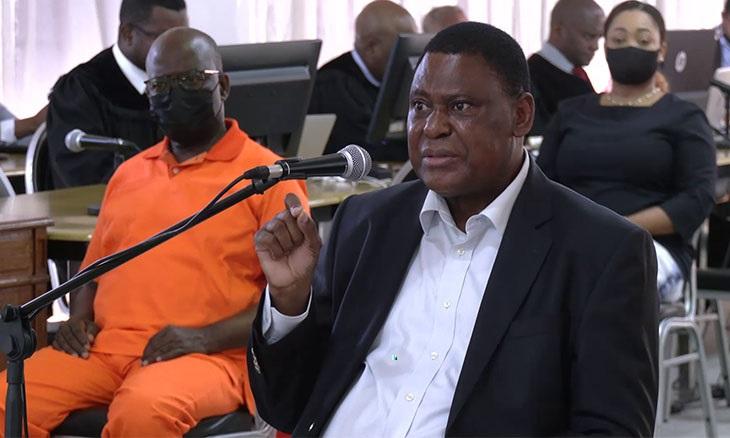Africa-Press – Mozambique. The former governor of the Bank of Mozambique, Ernesto Gove, on Tuesday told the Maputo City Court he had signed authorisations for foreign loans to the fraudulent companies, Proindicus, Ematum (Mozambique Tuna Company) and MAM (Mozambique Asset Management) on grounds of “sovereignty” and “national security”.
Gove was testifying as a witness in the trial of 19 people on charges arising from the three companies, and the illicit loans of over two billion US dollars they had obtained from the banks Credit Suisse and VTB of Russia.
Questioned by judge Efigenio Baptista, Gove admitted there were irregularities in the way the central bank had granted the authorisations. First, all such requests are supposed to be delivered at a counter on one of the branches of the Bank of Mozambique.
But in the cases of Proindicus, Ematum and MAM, the documents backing up the requests for loan authorisations were given personally to senior bank officials by the then chairperson of Proindicus, Eugenio Matlaba, and by the head of economic intelligence in the national security service (SISE), Antonio Carlos do Rosario.
Gove said the then General Director of SISE (and one of the accused in the current trial). Gregorio Leao had rung him up, telling him that Matlaba was bringing “an urgent matter” to the bank. Gove told the court that an approach by the head of SISE “must be treated with due deference”.
The irregularity of Leao making a direct approach was just a matter of knocking on the wrong door. Not so easy to dismiss was the fact that Matlaba and Rosario presented the Bank of Mozambique with a fait accompli – the financing contracts between Credit Suisse and Proindicus and Ematum had already been signed.
The central bank is supposed to authorize foreign loans, but what meaning could such an authorization have if the loan contracts had already been signed?
Gove admitted this was an irregularity but it was “one which could be overcome”. He said that, if the Bank discovered something amiss with the contracts, it could just send them back to the Proindicus, Ematum or MAM managements for rewriting. (But, in fact, not a word in the contracts was changed, and the bank simply authorized them).
“It was a question of sovereignty, and it was urgent”, claimed Gove.
“So for you, sovereignty comes first, and the law afterwards?”, asked Baptista
“I would have returned the contracts, if there was anything wrong with them”, replied Gove.
But there was no way out of the largest of the illegalities committed by Gove. Article 83 of the Regulations of the Foreign Exchange Law states that the Bank of Mozambique may not authorize foreign loans for private companies, if repayment of the loans depends on a state guarantee.
It is often said that Proindicus, Ematum and MAM are state companies, because their shareholders are all public bodies. But they were actually set up as private companies, and were intended to make a profit. The loans they obtained from Credit Suisse and VTB were entirely dependent on state guarantees, signed by the then Finance Minister, Manuel Chang. Without such sovereign guarantees, the two banks would not have lent a cent to any of the companies. Indeed the contracts with Credit Suisse state explicitly that authorisation from the Bank of Mozambique is a prior condition for the loans
Thus the law forbade the Bank of Mozambique from authorizing foreign loans to the companies, but the contracts with Credit Suisse insisted on the authorisations. So Gove came up with an ingenious interpretation whereby this article in the regulations only applied to state guarantees obtained after the loans had been agreed.
But in these three cases, Chang had already signed the guarantees and they were included in the dossiers Matlaba and Rosario delivered to the central bank. So Article 83 of the regulations did not apply, Gove claimed.
This forced interpretation did not impress Baptista. “The spirit of the law must be in at least minimal agreement with its letter”, he said.
Gove was also unwilling to admit that the demand for central bank authorization came from Credit Suisse. Had he read the contract between Credit Suisse and Proindicus or not? When Gove refused to give a straight answer, Baptista said “If you don’t want to answer, then don’t” – in which case, the trial minutes would record the witness as refusing to answer.
Gove then backed down and said he had read the contract, including the clause that demanded Bank of Mozambique authorisation for the loan.
He said he believed Credit Suisse knew what it was doing, was well versed in Mozambican legislation and had “probably” hired a Mozambican law firm.
Some managers at Credit Suisse certainly knew what they were doing – they were intent on draining as much money from Mozambique as possible. The three Credit Suisse managers who handled the Mozambique loans – Andrew Pearse, Detelina Subeva and Surjan Singh – all confessed in 2019 to a New York court that they had taken massive bribes from the Abu Dhabi based group Privinvest, the sole contractor for Proindicus, Ematum and MAM.
The more that Credit Suisse lent to the companies, the more that could be creamed off as bribes and kickbacks, ending up in the pockets of corrupt Mozambican, Credit Suisse and Privinvest officials. It is quite extraordinary that Gove still puts his trust in Credit Suisse, and seems unaware of the trail of corruption laid by this bank.
For More News And Analysis About Mozambique Follow Africa-Press






